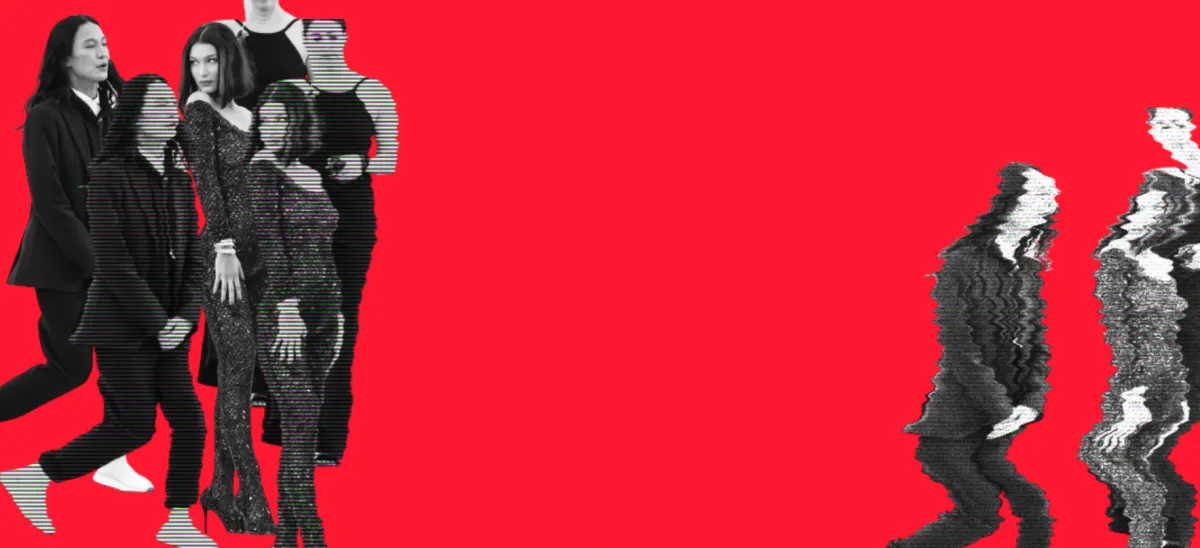Is It So Hard to Hold our Friends Accountable for their Predatory Behaviour?
No matter how many infographics we post on Instagram, by failing to call out our friends for their problematic behaviour, we’re only helping to normalise it.

Access the Audio Read version of this article directly on Spotify for Podcasters.
“There’s a concerning tendency within fashion to ignore predatory behaviour, with industry cliques often refusing to hold each other accountable. It seems the industry is either unwilling or afraid to address issues of sexual abuse when powerful figures are involved.”
In December 2020, fashion designer Alexander Wang faced multiple accusations of sexual assault. It began when male model Owen Mooney shared a series of TikTok videos detailing a 2017 incident where Wang allegedly groped him in a New York nightclub.
The story went viral after being shared on Instagram by Shit Model Management and fashion watchdog, Diet Prada, prompting others with stories about the designer to come forward. Such stories ranged from having their genitals exposed to being slipped MDMA without their knowledge, and rape.
This is not the first time Wang has been accused of predatory behaviour. In 2019, rapper and former Alexander Wang muse, Azealia Banks, shared anonymous accounts she’d been sent on Instagram. Twitter offers many more accounts detailing similar experiences, some dating back several years.
Despite all this, Wang faced little condemnation from the fashion industry. Retailers like Net-a-Porter and Nordstrom continued to carry Alexander Wang clothing, and the designer’s famous friends refused to comment. Many of the same celebrities who remained silent had previously expressed their support for the #MeToo movement, and social media users called out the likes of Zoe Kravitz and Kendall Jenner for not condemning Wang’s behaviour.
Mooney himself asked, "In an era of #MeToo and the solidarity victims received from Hollywood, where is the same support for the victims of Wang?"
On top of this, many of Wang’s victims mentioned that his friends were aware of what was happening and did nothing to stop it. A YouTube video by Vanity Fair shows a conversation between Florence Welch and Derek Blasberg (a friend of Wang). She says, “And Alexander Wang was like ‘you’re drunk, drink this water’ and then it was straight vodka,” before Blasberg jokingly responds, “Yeah, that’s his party trick.”
There’s a concerning tendency within fashion to ignore predatory behaviour, with industry cliques often refusing to hold each other accountable. It seems the industry is either unwilling or afraid to address issues of sexual abuse when powerful figures are involved. And accusations against other influential fashion figures indicate that fame, money and clout are enough to excuse unacceptable behaviour, and sweep it under the rug.
Such double standards also exist beyond the fashion industry. Following the murder of Sarah Everard earlier this year, thousands of people took to the streets to protest against harassment and assault, and social media was flooded with declarations of support for survivors. But, while we’re all too quick to publicly condemn sexual violence, we’re a hell of a lot less likely to call it out in our day-to-day lives, particularly when the predator in question is our friend.
The answer as to why this happens is simple — it’s human nature to want to fit in. Going against the grain can lead to alienation, which makes it difficult to speak up. So we brush away behaviour that we’d otherwise find completely unacceptable. We laugh it off, blaming it on alcohol and calling abusers ‘pests.’
But, no matter how many infographics we post on Instagram, by failing to call our friends out for predatory behaviour, we’re only working to normalise it. By not holding vital conversations about consent, we’re saying that it’s not a big deal to harass or assault another person. And, by maintaining friendships with known predators, we’re disregarding and invalidating the experiences of survivors, telling them that their trauma isn’t important enough to risk or cut off a friendship.
And this can be incredibly harmful. Survivors of sexual violence already receive a devastatingly low amount of justice for their suffering, with only 1.7% of reported rapes in England and Wales resulting in prosecution (Source: The Independent). When you see what happened to the Bill Cosby case, it is not hard understanding why so few victims speak up. By taking a stance of inaction when it comes to the toxic or predatory behaviour of our friends and acquaintances, we’re reinforcing the idea that survivors do not deserve justice, compounding the difficulties they’re already facing.
Of course, confronting someone about their problematic behaviour can make for an incredibly uncomfortable situation, but it’s necessary. No amount of infographics captioned #IBelieveHer can balance out the harm of dismissing a survivor’s trauma. Only through solidarity with survivors — and against abusers — can we truly call ourselves allies, and start to combat the issue of sexual violence.





